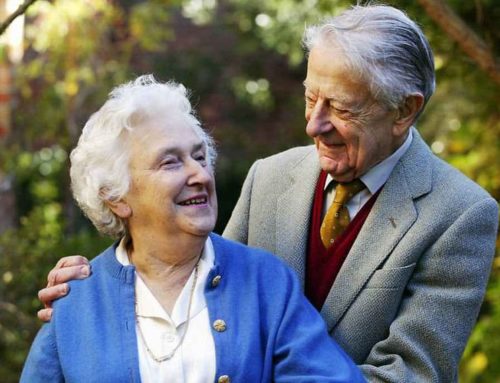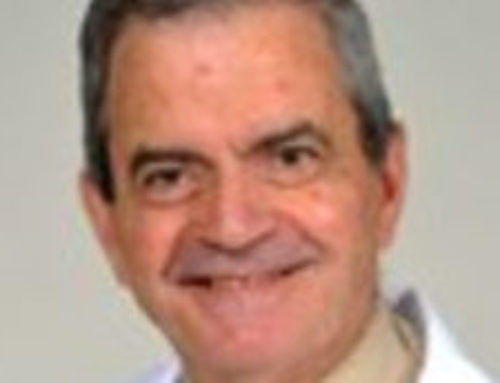5 April 1981
To the personnel of the Fatebenefratelli Hospital in Rome
On Sunday 5th April, the Holy Father visited the Roman Hospital of St John Calibita, on the Tiber Island, on the occasion of the fourth centenary of the presence of the Fatebenefratelli in Rome. John Paul II delivered the following address.
Praise be to God who has made possible this meeting with you, guests of this ancient and well-deserving hospital of the Tiber Island! I thank the Lord who has enabled me to talk to you to express to you my sincere affection.
I wish to greet the Prior General of the Hospitaller Order of St. John of God, Brother Pierluigi Marchesi, thanking him for his kind welcome and for the consoling words with which he wished to introduce this meeting. An equally affectionate greeting goes also to all the Members of the Board of Directors; to the Cardinal Vicar Ugo Poletti, to Bishop Fiorenzo Angelini, in charge of spiritual assistance in the hospitals and clinics of Rome; to the illustrious physicians, head physicians, senior assistants and assistants; to the clerical, para-medical and auxiliary personnel; to the chaplains, sisters, the group of volunteer workers and all those who in various ways carry out here their precious work of human and Christian solidarity in behalf of the dear sick. I greet everyone and I address my encouragement and appreciation to everyone in the name of the Lord Jesus who, during his earthly life, gave special attention to the sick, and cured all kinds of diseases (cf. Mk I,39; Lk 4,44; Mt 9,35). I address these same thoughts also to all the men and women nurses, on whom the smooth operation of the hospital depends to a great extent, because they are the greatest collaborators of the doctors and the assistants closest to the patients.
Origins enveloped in legend
Finding myself here, on the occasion of the fourth centenary of the arrival in Rome of the Religious of the Hospitaller Order, better known by the name of “Fatebenefratelli”, I cannot fail to recall the long period of history that has been unfolded here. Its origins are even enveloped in the aura of legend, according to which the first nucleus of this refuge was a ship that was submerged in the muddy waters of the Tiber. It is certain that already in the time of the Romans this mysterious island was used as a place of treatment. But it was in the 16th century, after years of abandonment, that it resumed its medical purpose in the light of Christian love, which is the characteristic of the followers of Christ and which St. John of God succeeded in installing so well in his spiritual children who have run this hospital with loving and admirable care for centuries. Their presence in Rome goes back, in fact, to 1581, when a small number of Brothers began to care for the poor at a little hospital in Piazza di Pietra, amid the imposing columns of the Ancient Temple of Hadrian. The work of assistance, carried out with Christian piety by the first Spanish and Italian religious, soon attracted the esteem, the respect and the veneration of the citizens, so that that first site ended up by being too small to hospitalize and treat all the poor who turned to the charity of the religious. It was then that the hospital was transferred from that place to this more spacious and comfortable site in 1584. In nearly 400 years of activity it has restored health and the joy of life to countless sick of so many generations, who have in these four centuries succeeded one another in this hospital. The approval and thanks of Rome, of the Church and of the Pope therefore goes to the “Fatebenefratelli” for this blessed beneficial work, which is their true claim to glory.
Noble Work of Doctors
Together with the religious, who direct this hospital, my spontaneous and due thought goes to all the physicians who have worked in the past and are working today for the treatment and relief of the patients.
Beloved Doctors, I willingly take this opportunity to reaffirm also to you, as I have already done on other occasions, the benevolence, the esteem and the hope that the Church places in you and in your experience in such a noble and generous mission as that of service to suffering brothers and sisters. I am happy, in this connection, to borrow the words that my venerated Predecessor Pius XII addressed to a group of surgeons in 1945: “How elevated, how worthy of every honour is the nature of your profession! The doctor has been designated by God to meet the needs of suffering humanity. He, who created this being, consumed by fever or lacerated, whom you see here in your hands: he who loves him with an eternal love, has entrusted to you the ennobling task of restoring him to health. You bring to the sick person’s room and to the operating table something of the charity of God, of the love and tenderness of Christ, the great physician of the soul and the body. This charity is not a superficial sentiment which lacks firmness… It is, in fact, love which embraces the whole person, a being who is a brother in humanity, and whose sick body is still animated by an immortal soul, whom all the rights of creation and of redemption unite with the will of his Divine Master”. (Discorsi e Radiomessaggi, VI, pg 304).
Doing all for love
I wished to quote this stupendous passage of Pius XII’s address, because it highlights the mission of doctors and the human and Christian solidarity they must show together with their doctrine and with the advances of experimentation. You, too, under the severe scientific investigation which is always necessary for a precise diagnosis, be inspired by humanity and a deep sympathy towards those who have recourse to your help. Be always ministers of life: never, never, instruments of death! Do everything with love, for love of Christ, who will not leave unrewarded all that you do for the humblest of his fellow men: because he wished to identify himself with each of them: “Quamdiu fecistis uni de his fratribus meis minimis, mihi fecistis” (Mt 25,40): “As long as you did it for one of these least brothers of mine, you did it for me”.
May this ideal motive sustain you in your profession: may it be the secret heartbeat that enables your efforts; may it be the sacred commitment that makes you perceive in the suffering, especially in the most abandoned, the painful face of Christ and his grateful expression. Let yourselves be guided by these sentiments in the care of your patients and “the God of love and peace will be you” (2 Cor 13:11)
Sharing in the mystery of the cross
And what shall I say to you, dear sick people, present at this meeting or in the wards of this hospital? Once more I express to you my greeting and particular affection. And then I will tell you that you are dear to me, not only because of the particular claim you have to sharing more than others in the mystery of the Cross and of redemption; you are dear to me because I see in you the treasures of the Church, which is continually enriched with the gift of your suffering; you are dear to me because you are pilgrims on your way towards Heaven, following a difficult and steep path and passing through the narrow door; you are dear to me because the blessedness reserved by Christ for those who suffer, belongs to you. So be blessed.
It is necessary to remind all of you, sorely tried by suffering, who are listening to me, that your pain unites you more and more with the Lamb of God, who “takes away the sins of the world” through His Passion (Jn 1,29). And that therefore you, too, associated with him in suffering can be co-redeemers of mankind. You know these shining truths . Never tire of offering your sufferings for the Church, that all her children may be consistent with their faith, persevering in prayer and fervent in hope.
I repeat forcefully to you today what I said at Cottolengo in Turin: “With your pain you can strengthen hesitant souls , bring back to the right way those who have strayed, restore serenity and confidence to those in doubt and anguish. Your sufferings, if accepted generously and offered in union with those of Christ Crucified, can make an outstanding contribution in the battle for the victory of good over the forces of evil, which are lying in wait for modern humanity in so many ways” (Insegnamenti di Giovanni Paolo II, III, 1,1980, page 874).
Accept and live your experiences of pain in this light: never refuse to make a gift of your sacrifices and your hidden sufferings to the Lord and to the Church: you yourselves will be the first to have merit and reward.
Message of hope
Beloved brothers and sisters, at the end of my talk with you on this evening of the fifth Sunday of Lent, I cannot but re-echo the announcement of hope, which we listened to in the proclamation of the Gospel of the Mass today. Before working the miracle of the resurrection of Lazarus at Bethany, Jesus makes a solemn proclamation about himself, which would give to generations and generations of Christians throughout the centuries hope that does not disappoint , in fact a firm certainty . The Lord says to Martha, the sister of Lazarus: “I am the resurrection and the life; he who believes in me, though he die, yet shall he live, and whoever lives and believes in me shall never die” (Jn 11, 25-26). As Son of God, Jesus is not only a mediator for his faithful, but also the author or efficient cause of that superior life which conquers death and is given not only on the last day, but every day. The Lord asks Martha, and therefore all of us, for this faith. Let us likewise answer, together with Martha, with a profession of faith in Jesus the Messiah: “Yes, Lord; I believe that you are the Christ, the Son of God, he who is coming into the world”. (Jn 11:27). Let us, too, recognize Christ as Our Lord, as he who stands in front of us, as he stood in front of that tomb of Lazarus in Bethany. We, too, have need of resurrection. Is not our whole life a rising again from evil, from disease and from death? But let us not fear, there is a Saviour, there is Jesus Christ among us. He stands in front of us and cries to us as He did to Lazarus: “Come out!” (Jn 11:43). Come out of your physical and moral infirmity, your indifference, your sloth, your selfishness and the disorder in which you live. Come out of your despair and your restlessness, because the time announced by the prophets has come, the time of salvation, in which “I will raise you. O my people…I will put my Spirit within you, and you shall live” (cf. Ez 37:12-14).
Let us live our earthly existence with this hope and with this perspective, which gives our life calm, inner serenity, profound peace and confidence, in the common certainty that in us there is not a fragment of life that is not destined to rise again with Christ.
In this spirit, as we approach the holy Easter celebrations, I heartily express to one and all of you fervent wishes for Christian joy and continual resurrection in Christ, our Redeemer.
With my Apostolic Blessing.
John Paul II









